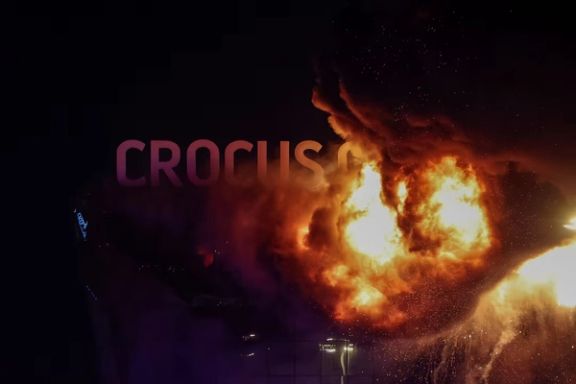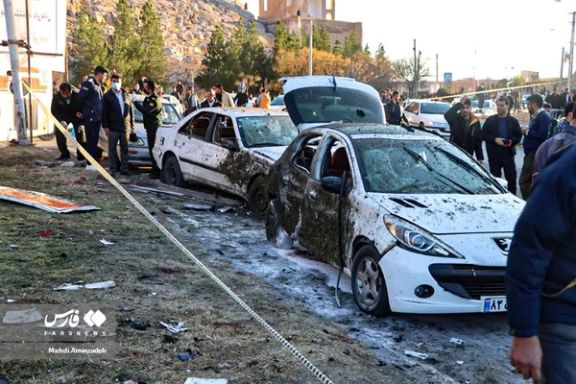Iran Tipped Off Russia To Moscow Terror Attack - Report

Prior to the Moscow concert hall massacre last month, Iran had warned its ally Russia about the imminent terror attack, according to Reuters.

Prior to the Moscow concert hall massacre last month, Iran had warned its ally Russia about the imminent terror attack, according to Reuters.
At least 144 people were killed in the attack claimed by Islamic State, which saw gunmen open fire at the Crocus City Hall.
Days before the shootings in the Russian capital, Tehran had allegedly sent warnings to Moscow, through intelligence gleaned from interviews with Islamic State terrorists connected to the deadly twin bombings in Iran in January.
After the terror attacks that killed around 100 in Kerman, Iran claimed to have arrested 35 people, including a commander of Islamic State's Afghanistan-based branch ISIS-Khorasan (ISIS-K), which claimed responsibility for the Iran attacks, the worst since the founding of the Islamic Republic.

Another source told Reuters that Tehran had failed to provide specific intelligence to Moscow such as the location and timing of the attack, though warned that members of ISIS-K had already travelled to Russia, failing to foil the deadly shootings.
However, both Iran and Russia, vehement foes of the US had ignored warnings from Washington of the imminent terror attacks. Moscow was warned three days before the Friday night massacre and Iran more than a week before the Kerman attacks.
Relations between Iran and Russia have deepened since the war in Ukraine, in which Iran has provided drones used in Russia’s offensives. The two sanctioned nations have also become key financial allies as they skirt global crackdowns.
Security and intelligence ties continue to deepen between the two pariah states. In July, Iran and Russia signed a new cooperation agreement to expand bilateral security and law enforcement cooperation, inked between Iran’s police chief, Ahmad Reza Radan, and the head of Russia’s national guard, Viktor Zolotov.
Then in December, Iran's parliament approved a bill aimed at fostering cooperation with Russia in the realm of information security. Comprising nine articles, the bill focuses on combating cyber threats, fortifying information security measures, and fostering collaboration between Iran and Russia. A key clause in the legislation addresses the exchange of information and cooperation in prosecuting criminal offenses between the two nations. Military drills between the two nations and their ally China have also been happening with increasing frequency.
The attack was a huge blow to the Kremlin, known for its high-level network of intelligence at home and abroad. Both the attacks in Iran’s Kerman and Moscow involved Tajik nationals, ISIS-K having aggressively recruited from the impoverished former Soviet republic of in recent years. While Islamic State has been largely defeated in Iraq and Syria, ISIS-K remains strong, covering Iran, Turkmenistan and Afghanistan.
Reuters also claims that the issue has been discussed between Iran and Tajikistan in a bid to halt the militant activities against Iran’s Shi’ites, hated by Islamic State’s Sunni-following Islamists.
While in 2022 Islamic State claimed responsibility for a deadly attack on a Shi'ite shrine in Iran that killed 13 people, also carried out by a Tajik national, the Moscow attack came as a shock. Islamic State also carried out twin bombings in 2017 that targeted Iran's parliament and the tomb of the Islamic Republic's founder, Ayatollah Ruhollah Khomeini.
Iran's foreign ministry and the Kremlin did not reply to a request for comment on the latest revelations in the Reuters story and Russia has instead continued to blame Ukraine for the attack in spite of the admission by ISIS-K.